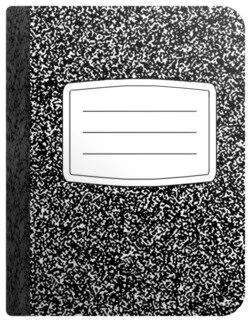Both the ACT and SAT essays will be changing within the next 14 months. The ACT will implement its new essay format with the September 12th, 2015 test date, and the SAT will likely premier its new optional essay on its January 24th, 2016 test.
One of the key reasons behind the overhauls is that in their current states, both essays can be written to formula.
The ACT prompt, for instance, usually deals with some act or fiat imposed on schools: random locker checks, video cameras in the playground, school uniforms…and the essay writer needs to either agree or disagree with the proposal and then offer up two supporting examples. One girl who received a 12 ( on both the SAT and ACT a perfect score) on her ACT essay mentioned she always disagrees with whatever is being imposed upon the schools, states the opposing argument, destroys it, offers up two solid examples that support her thesis, and then concludes, ending with a ‘zinger,’ disengaging with a profound statement.
The new ACT essay will focus on controversial issues such as global warming, GMOs, or the role of art in society. The response needs to include a logical argument with cogent examples, but now there will be three short quotes expressing a spectrum of views. The test taker will need to evaluate the quality of the responses and build those evaluations into the essay. The ACT still has not announced whether it will add more time to the current 30-minute limit.
Possibly, the announced ACT essay changes are an effort to preempt the proposed 2016 changes to the SAT essay. The SAT essay (as is the entire test) is undergoing profound changes.
Currently the SAT essay prompts deal with concepts: “Should freedom be sacrificed for safety?” or such profound questions as, “Is there a good war or a bad peace?” Smart, well-trained students will respond with an essay that shows mastery over style, syntax, structure, and logic, is legible, has four paragraphs with two cogent examples spread over two pages (since many studies indicate that SAT essay scorers favor length). The problem has been that students may use examples that are completely fabricated. As David Coleman, the president of the College Board guilelessly remarked, the writing section ‘does not grade you on the correctness of what you write.”
To avoid such travesties writing rampant on the New SAT, its essay requires ‘cogent and clear written analysis’ using evidence from a ‘challenging source text.’ The essay prompt will not vary much from test to test; rather, it will be the passage that determines the essay’s challenge. One of the sample essays I reviewed was adapted from Paul Bogard’s Let There be Dark and the prompt asked, ‘…explain how Paul Bogard builds an argument to persuade his audience that natural darkness should be preserved.’ Careful reading and analysis are integral to the new essay writing process.
Instead of 25 minutes, the new SAT essay will allot 50. The passages will consistently be 650-750 words; the scoring system is still under review, through one provisional scheme would divide the 12 points among critical reading, analysis, and writing.
Regardless of how you might dress up the new SAT essay contention abounds. One such critic, James Murphy, a tutor for the Princeton Review, contends (“Don’t Overhaul the SAT Essay, Dump It”, 18 October 2014 Wall Street Journal) that the new SAT essay is too long, making the essay writing more an endurance test; that he already has a plan to address the 50-minute essay with 6 paragraphs, chunking analysis into increasingly smaller components; and, that the new SAT essay ‘does not contribute to the overall predictive nature of the exam. He adds that in a recent survey of admissions officers, 67% said that the writing section had little to do with the final admissions decision.
Regardless of how efficacious either essay is in determining an applicant’s capabilities, the ACT and SAT essay changes are attempting to better incorporate reading, analysis and writing. How EB White or HL Menken might have done on either of these new incarnations is open to speculation.

